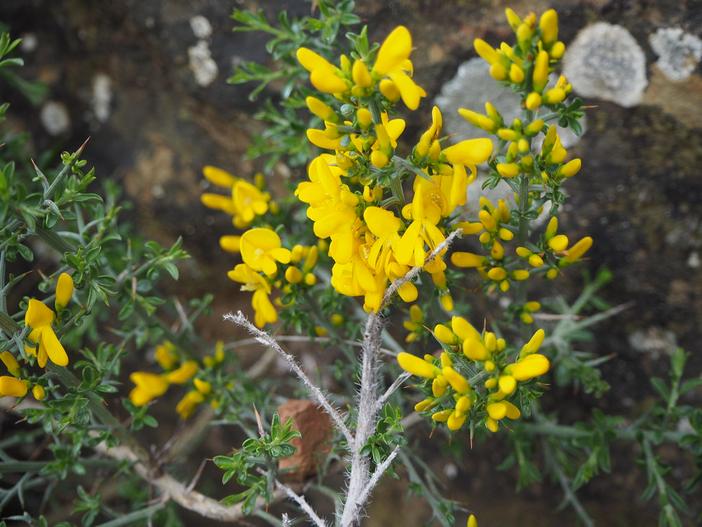Scorpion Broom
(Genista scorpius)
Scorpion Broom (Genista scorpius)
/
/

Teresa Grau Ros
CC BY-SA 2.0
Image By:
Teresa Grau Ros
Recorded By:
Copyright:
CC BY-SA 2.0
Copyright Notice:
Photo by: Teresa Grau Ros | License Type: CC BY-SA 2.0 | License URL: https://creativecommons.org/licenses/by-sa/2.0/ | Uploader: tgrauros | Publisher: Flickr
































Estimated Native Range
Summary
Genista scorpius, commonly known as Scorpion Broom or French Broom, is an evergreen shrub native to the Mediterranean region. It is typically found in maquis and garigue habitats, which are characterized by dry, rocky areas with poor, nutrient-deficient soils. This shrub grows at a moderate rate to a typical height and width of 2-4 feet (0.6-1.2 meters). Scorpion Broom has a dense, rounded form with small, green leaves and vibrant yellow, pea-like flowers that bloom profusely in the spring and early summer, creating a highly ornamental display.
Scorpion Broom is valued for its drought tolerance and ability to thrive in poor soils, making it suitable for xeriscaping and as a low-maintenance ornamental in rock gardens and coastal landscapes. It is also used for erosion control on slopes and banks. However, its potential for invasiveness should be considered before planting, as it can spread rapidly and outcompete native vegetation. In cultivation, it requires full sun exposure and well-drained sandy or loamy soils. It is highly adaptable to different soil types but performs best with low water once established. While generally disease-resistant, it can be susceptible to fungal root rots in poorly drained soils.CC BY-SA 4.0
Scorpion Broom is valued for its drought tolerance and ability to thrive in poor soils, making it suitable for xeriscaping and as a low-maintenance ornamental in rock gardens and coastal landscapes. It is also used for erosion control on slopes and banks. However, its potential for invasiveness should be considered before planting, as it can spread rapidly and outcompete native vegetation. In cultivation, it requires full sun exposure and well-drained sandy or loamy soils. It is highly adaptable to different soil types but performs best with low water once established. While generally disease-resistant, it can be susceptible to fungal root rots in poorly drained soils.CC BY-SA 4.0
Plant Description
- Plant Type: Shrub
- Height: 2-4 feet
- Width: 2-4 feet
- Growth Rate: Moderate
- Flower Color: Yellow
- Flowering Season: Spring, Summer
- Leaf Retention: Evergreen
Growth Requirements
- Sun: Full Sun
- Water: Low
- Drainage: Fast
Common Uses
Deer Resistant, Drought Tolerant, Erosion Control, Low Maintenance, Showy Flowers
Natural Habitat
maquis and garigue habitats, dry, rocky areas with poor, nutrient-deficient soils
Other Names
Common Names: French Broom
Scientific Names: , Genista scorpius, Argelasia scorpius, Corniola scorpius, Lebeckia scorpius, Spartium scorpius,
GBIF Accepted Name: